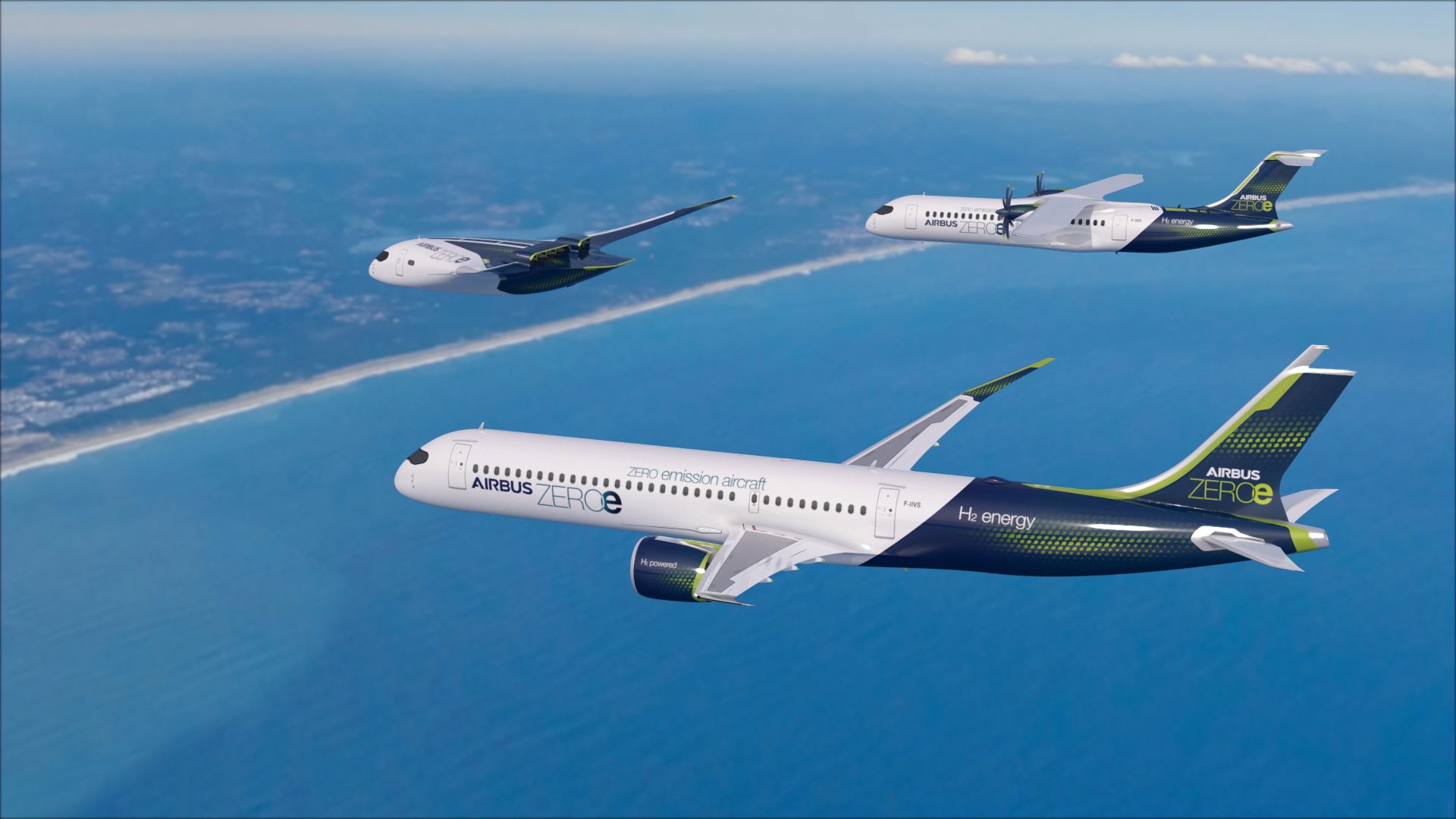According to the US Federal Aviation Administration, “while there may be a role for hydrogen on shorter-range flights and more broadly in the years beyond 2050, we do not expect hydrogen-powered aircraft to make a significant contribution toward achieving net-zero aviation emissions by 2050.” 1
Airbus begs to differ. The company is a leader in the aerospace industry, and they are exemplifying that leadership with their work in hydrogen-powered flight. In an effort to eliminate emissions, they have undertaken a few promising initiatives that can pave the way for the future of air travel.
The ZEROe Program, led by Mathias Andriamisaina, is one such initiative that is picking up steam. Airbus has a goal to have the first commercial aircraft powered by hydrogen in the air by 2035, and this program, launched in September of 2022, is a key step along the way.
With three concept craft – the Turbofan, Turboprop, and Blended-Wing Body – designed for different capacities and ranges, Airbus is clearly well on their way to reaching their goal. For practical research, Airbus have designed the ZEROedemonstrator, a massive A380, to test hydrogen combustion and gauge the viability of fully hydrogen-powered flight.
What does this mean for contrails?
Although hydrogen combustion emits about 2.6 times more water vapor, 2 it does not contain the soot and sulfur that jet fuel does. This means that though contrails may be more likely to form, they will not persist and have the same warming effects as those caused by jet fuel emissions. At least that’s the theory.
Airbus UpNext have launched the Blue Condor project to test that theory and analyze the impact of hydrogen combustion on non-CO2 emissions. In fact, in November of 2023, Blue Condor wrote its name in history as the first 100% hydrogen-powered flight as its modified Arcus-J glider soared over the deserts of Nevada. 3 Trailing behind was a chase flight: an unmodified Arcus-J which was equipped with emissions sensors from DLR to gather pertinent data. The results of this test flight and others scheduled for early 2024 will lay the groundwork for the flights of the ZEROedemonstrator. As yet, there is no definitive research on hydrogen fuel and contrails, but studies like this are exactly what the aviation industry needs to move forward.
Airbus is at the forefront of embracing hydrogen fuel for greener (well, bluer) skies, but they can’t do it alone. They are collaborating with teams like the Perlan Project for the Blue Condor research, CFM International to create hydrogen combustion technology, and ElringKlingerAG for the Aerostack joint venture in developing hydrogen fuel cell stacks. These innovative partnerships and projects will continue to set the standard for aviation’s transition to zero-emission flight.
[1] FAA Climate Action Plan – https://www.faa.gov/sites/faa.gov/files/2021-11/Aviation_Climate_Action_Plan.pdf
[2] Blue Condor Project – https://www.airbus.com/en/newsroom/stories/2022-07-how-blue-condor-will-accelerate-airbus-first-hydrogen-powered-test-flights
[3] First Hydrogen Flight – https://www.aerospacemanufacturinganddesign.com/news/blue-condor-makes-airbus-first-full-hydrogen-powered-flight/

